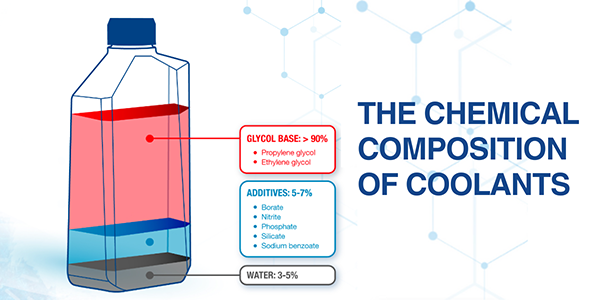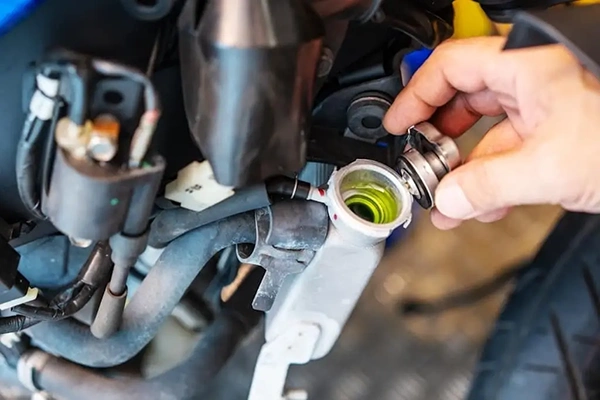I’m a sedan owner, and I recently got to know about a liquid, it’s called antifreeze. But what is antifreeze, and why does a car need it?
Wikipedia explains it as “An antifreeze is a chemical supplement that lowers the frothing point of a water-based liquid.” So, now that I have proper insights into it, I’m going to give you a complete guide on what antifreeze is and why your vehicle needs it.
I will also include which coolant is best for you. If you want to increase the life span of your engine, pay attention and read carefully. Also, if you are looking to buy a good second-hand car, check out cars at Indy Auto Man.
The main property of antifreeze follows directly from its name – it is a liquid that does not freeze. More precisely, it freezes at very low temperatures: for modern coolants, this is usually –40 degrees Fahrenheit.
There are different ways to lower the freezing point of the liquid. In most automotive aerosols, it is mixed with monoethylene glycol (MEG), a substance from the class of polyhydric alcohols.
A small amount of cheaper and more environmentally friendly glycerin is also added. Even when freezing, antifreeze does not turn into a block of ice, but into a substance resembling snow – it does not increase in volume and therefore does not damage the engine. But, of course, you can’t drive with a frozen cooling system.
However, alcohols are quite aggressive substances, so a mixture of monoethylene glycol and water accelerates the corrosion of the engine’s metals 20 times. It is also not good for gaskets, rubber seals, and hoses.
Historically, coolants developed following piston technologies – and designers determined chemists’ types of antifreeze requirements. In addition, engineers from different transportation manufacturers had ideas about what a coolant should be.
As a result, several types of antifreeze are now produced, which are very different. Antifreeze ratings can be formed based on the coolant:
If we talk about what chemical compounds it carries, it looks something like this:

The best way to get a high-quality freeze inhibitor is to go to a reputable store or service in Indianapolis and buy a quality composition. But there will most likely be a wide selection of canisters with antifreeze of different brands and colors.
Which one do you need? Water, MEG, and any additives are transparent. The antifreeze is made red, blue, or green by a dye added to make it easier to control its level and find leaks.
Unfortunately, unlike motor oils, there are no uniform world standards for types of antifreeze – each chemical company is free to color and name its products.
Or as required by large customers – that is, the color can be selected to suit the transport manufacturer’s desires.
So, the best assistant in choosing antifreeze is the motor vehicle manufacturer. Before shopping, it is worth looking at the operating manual or the technical section on your car’s brand website.

It depends on what type of coolant was recommended to you. Who, in turn, expects that automobile owners will use the antifreeze prescribed in the operating manual – the one for which it developed the cooling systems of its engines.
Today, none of the auto producers recommend inorganic antifreeze. But the production continues – mainly for older motorists because it is cheap and does not corrode old hoses with gaskets. Of course, if it is not counterfeit.
But cheapness is deceptive. With proper use, such antifreeze should be changed every year or two. Or immediately if the liquid in the expansion tank has become brown-rusty, indicating the corrosion development in the engine.
Carboxylate antifreeze lasts even longer – around five years or more if the car’s service book allows. The most durable antifreeze type is lubrid. Some transport manufacturers even claim that they do not need to be changed until the combustion chamber has exhausted its resources.
DID YOU KNOW?
The first antifreeze coolant was introduced in 1926!
In this article, I told you that an antifreeze protects your car engine from freezing and overheating. It’s just a simple mixture of coolant and water, but is important for your vehicle to regulate its intake temperature.
There are different variants of it like inorganic, organic, and hybrid. However, you shouldn’t just pick any of them, and consult your manufacturer before applying anything. The wrong chemical can mess up your engine.
